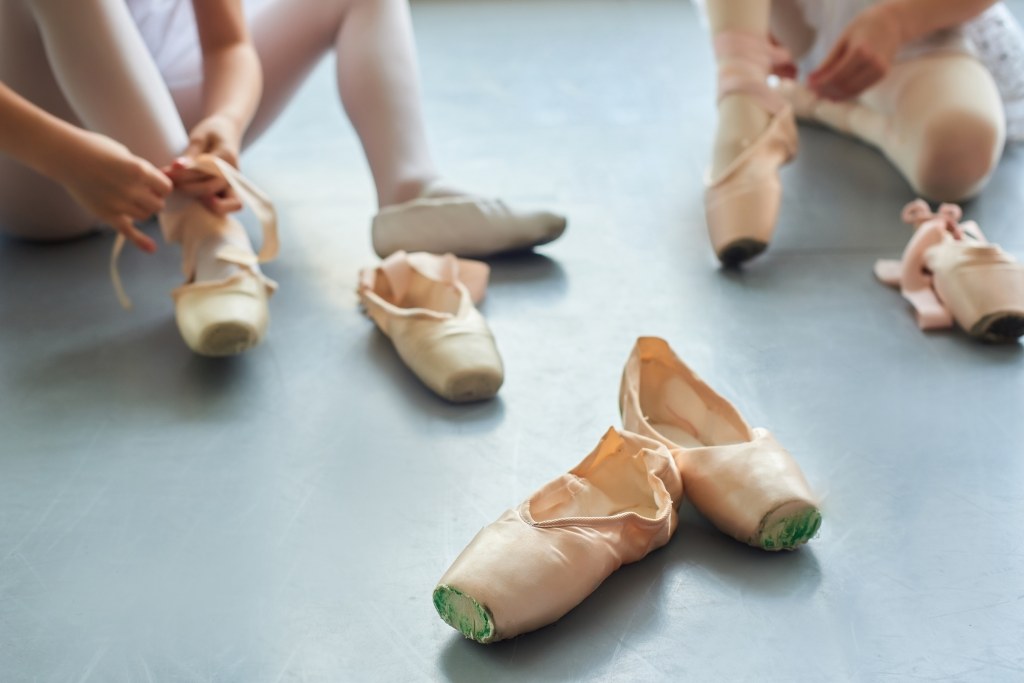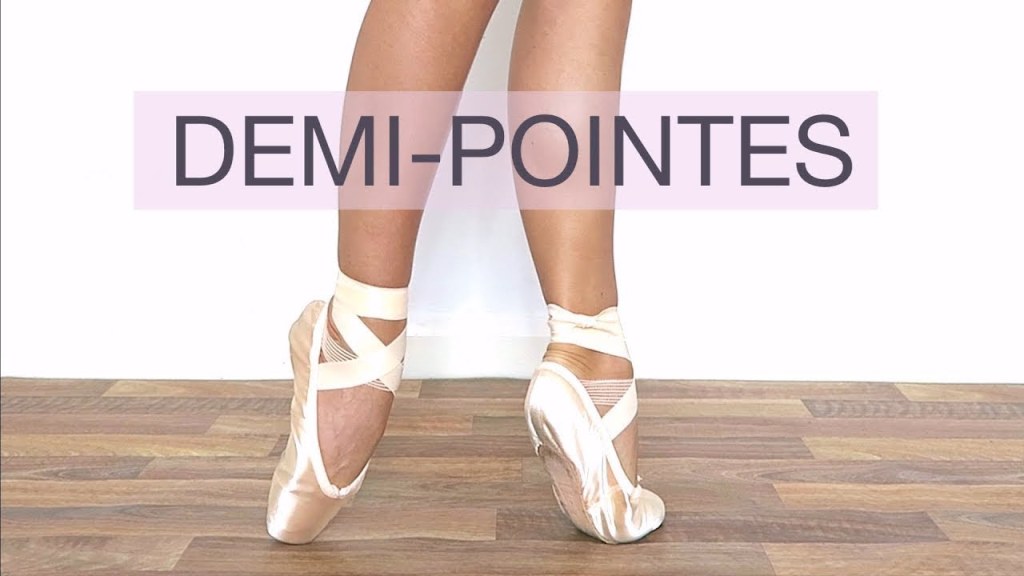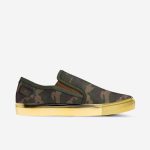Unveiling The Battle: Demi Pointe Shoes Vs Pointe Shoes – Choose Your Perfect Fit And Take The Leap!
Demi Pointe Shoes vs Pointe Shoes: A Comparison
Welcome, Fashion Enthusiasts and Shoes Lovers, to this informative article comparing demi pointe shoes and pointe shoes. As a ballet dancer or someone interested in the art form, you may have heard of these two types of shoes. But what exactly are they and how do they differ? In this article, we will explore the differences between demi pointe shoes and pointe shoes, their pros and cons, and answer some frequently asked questions. So, let’s dive in!
Introduction
Demi pointe shoes, also known as soft blocks or pre-pointe shoes, are a transitional shoe for ballet dancers. They are worn before a dancer advances to wearing pointe shoes. Pointe shoes, on the other hand, are the iconic shoes that allow dancers to dance on the tips of their toes, creating the illusion of weightlessness and grace. Both shoes serve important roles in a dancer’s journey, but they have distinct differences in construction and purpose.
2 Picture Gallery: Unveiling The Battle: Demi Pointe Shoes Vs Pointe Shoes – Choose Your Perfect Fit And Take The Leap!


Before we delve deeper into the comparison, let’s take a closer look at the key features of demi pointe shoes and pointe shoes:
Feature
Demi Pointe Shoes
Pointe Shoes

Image Source: getballetbox.com
Construction
Flexible sole
Stiff sole with a box
Usage
Transition to pointe work
Advanced pointe work
Support
Less support
Maximum support
Toe Platform
Soft
Hardened
What are Demi Pointe Shoes?
Image Source: tiktok.com
Demi pointe shoes, as the name suggests, are a stepping stone towards pointe work. They are designed to strengthen the dancer’s feet and prepare them for the challenges of dancing en pointe. These shoes have a flexible sole that allows the dancer to rise onto the balls of their feet but not fully onto their toes. They also provide minimal support compared to pointe shoes.
Why are Demi Pointe Shoes Worn?
Demi pointe shoes are worn to develop the necessary foot and ankle strength required for pointe work. They help dancers establish proper alignment, balance, and technique. These shoes allow dancers to practice movements on demi pointe, such as relevés and balances, without putting excessive strain on their feet.
Who Should Wear Demi Pointe Shoes?
Demi pointe shoes are typically worn by ballet students who have been training for a significant amount of time and have gained sufficient strength in their feet and ankles. They are often recommended by ballet instructors as a prerequisite before transitioning to pointe work. It is crucial to consult with a dance teacher or a professional fitter to determine if you are ready for demi pointe shoes.
When Should Demi Pointe Shoes Be Used?
Demi pointe shoes are used when a dancer is ready to advance from regular ballet shoes but not yet ready for the full support and rigidity of pointe shoes. They are typically worn during ballet class exercises that focus on strengthening the feet and improving technique. It is essential to follow the guidance of a dance teacher to ensure the correct usage of demi pointe shoes.
Where Can Demi Pointe Shoes Be Purchased?

Image Source: ytimg.com
Demi pointe shoes can be purchased at specialized dancewear stores or online retailers that cater to ballet dancers. It is crucial to get fitted by a professional to ensure the correct size and fit for optimal comfort and support. Some renowned ballet shoe brands that offer demi pointe shoes include Bloch, Capezio, and Grishko.
Why Choose Demi Pointe Shoes Over Pointe Shoes?
There are several reasons why dancers choose to wear demi pointe shoes over pointe shoes. Firstly, demi pointe shoes allow dancers to focus on strengthening their feet and building the necessary muscles before advancing to pointe work. They also provide more flexibility, allowing for a smoother transition to dancing en pointe. Additionally, demi pointe shoes are generally less expensive than pointe shoes, making them a more affordable option for dancers.
How to Care for Demi Pointe Shoes?
Proper care and maintenance are essential to prolong the lifespan of demi pointe shoes. After each use, it is recommended to air dry them and store them in a breathable bag. Avoid getting them wet or exposing them to excessive heat. Regularly inspect the shoes for any signs of wear and tear, and replace them as needed to ensure optimal performance and safety.
What are Pointe Shoes?
Pointe shoes are the quintessential ballet shoes that allow dancers to dance on the tips of their toes. They are an essential tool for professional ballet dancers and are known for their iconic appearance and remarkable craftsmanship. Pointe shoes have a stiff sole with a box, providing maximum support to the dancer’s feet.
Who Should Wear Pointe Shoes?
Pointe shoes are usually worn by experienced ballet dancers who have undergone years of training and have developed the necessary strength and technique to dance en pointe. It is not recommended for beginners or dancers without proper guidance. The decision to start wearing pointe shoes should be made in consultation with a ballet teacher or a professional fitter.
When Should Pointe Shoes Be Used?
Pointe shoes are used when a dancer has achieved the required strength, technique, and anatomical readiness to dance on pointe. They are typically worn during performances, rehearsals, and advanced ballet classes. It is essential to follow a gradual progression and not rush into wearing pointe shoes to prevent injuries and ensure a solid foundation.
Where Can Pointe Shoes Be Purchased?
Pointe shoes should be purchased from reputable dancewear stores or online retailers that specialize in ballet equipment. It is crucial to get fitted by a professional fitter who can assess the dancer’s feet and recommend the most suitable brand and model. Popular pointe shoe brands include Freed of London, Gaynor Minden, and Russian Pointe.
Why Choose Pointe Shoes Over Demi Pointe Shoes?
Dancers choose to wear pointe shoes primarily for the freedom and artistry they provide. Pointe work allows dancers to create beautiful lines and execute intricate movements that showcase their technical ability and grace. Pointe shoes also offer maximum support, enabling dancers to perform challenging steps and variations with ease. However, it is essential to reach a certain level of strength and technique before transitioning to pointe shoes.
How to Care for Pointe Shoes?
Proper care and maintenance are crucial for prolonging the lifespan of pointe shoes. After each use, allow them to air dry thoroughly and avoid storing them in a closed bag to prevent moisture buildup. Some dancers choose to darn their shoes, reinforcing the tips with thread, to extend their durability. It is also recommended to rotate between multiple pairs of pointe shoes to allow them to fully dry and regain their shape between uses.
Pros and Cons of Demi Pointe Shoes vs Pointe Shoes
Pros of Demi Pointe Shoes:
1. Gradual transition to pointe work: Demi pointe shoes help dancers develop strength and technique before dancing en pointe, reducing the risk of injuries.
2. Flexibility: These shoes allow for a greater range of movement and articulation of the feet.
3. Affordability: Demi pointe shoes are generally more cost-effective than pointe shoes, making them accessible to a wider range of dancers.
4. Versatility: Demi pointe shoes can be used for various ballet exercises and can also serve as performance shoes for certain repertoire.
Cons of Demi Pointe Shoes:
1. Limited support: Demi pointe shoes provide less support compared to pointe shoes, which may not be suitable for dancers with weaker or more delicate feet.
2. Transition period: The transition from demi pointe shoes to pointe shoes can be challenging, requiring additional time and effort to adapt to the increased support and rigidity.
3. Less aesthetic appeal: Demi pointe shoes lack the iconic appearance and elegance of pointe shoes, which may be a consideration for dancers in certain performances or roles.
Pros of Pointe Shoes:
1. Artistic expression: Pointe shoes allow dancers to achieve the ethereal beauty and grace associated with ballet, creating stunning visual effects.
2. Maximum support: These shoes provide the necessary support and stability for dancers to execute demanding pointe work with confidence.
3. Versatility: Pointe shoes are essential for performing classical ballet repertoire, as well as contemporary and neoclassical works that incorporate pointe work.
4. Anatomical adaptation: Wearing pointe shoes can lead to positive anatomical changes in the feet, such as stronger arches and increased foot articulation.
Cons of Pointe Shoes:
1. Risk of injuries: Dancing en pointe puts significant strain on the feet, ankles, and lower legs, increasing the risk of injuries such as sprains, stress fractures, and bunions.
2. Learning curve: It takes time and dedication to develop the strength, technique, and balance required to dance comfortably and safely in pointe shoes.
3. Cost: Pointe shoes can be expensive, especially for professional dancers who require frequent replacements due to wear and tear.
Frequently Asked Questions (FAQ)
Q: Can I start pointe work without wearing demi pointe shoes?
A: While it is possible to start pointe work without wearing demi pointe shoes, it is generally recommended to build strength and technique using demi pointe shoes first to reduce the risk of injuries.
Q: How long does it take to transition from demi pointe shoes to pointe shoes?
A: The transition period varies for each dancer, depending on individual factors such as strength, flexibility, and dedication to training. It can range from several months to a year or more.
Q: Can I wear pointe shoes for regular ballet class exercises?
A: Pointe shoes are typically reserved for advanced ballet classes and performances. Regular ballet class exercises are usually done in regular ballet shoes or demi pointe shoes.
Q: What should I do if my pointe shoes hurt my feet?
A: It is normal for pointe shoes to cause some discomfort, especially during the breaking-in period. However, if you experience severe pain or persistent discomfort, it is important to consult with a professional fitter or a podiatrist to ensure the shoes are properly fitted and to address any underlying issues.
Q: How often should I replace my pointe shoes?
A: The lifespan of pointe shoes depends on various factors such as frequency of use, dancing style, and personal preference. Professional dancers may need to replace their pointe shoes as often as every few weeks, while recreational dancers may replace them every few months.
Conclusion
In conclusion, both demi pointe shoes and pointe shoes play significant roles in the ballet dancer’s journey. Demi pointe shoes serve as a stepping stone, helping dancers develop the necessary strength and technique before transitioning to pointe work. Pointe shoes, with their iconic appearance and maximum support, allow dancers to achieve the ethereal beauty and grace associated with ballet.
Whichever shoes you choose, it is essential to consult with a dance teacher or a professional fitter to ensure the correct fit and usage. Remember to prioritize safety, listen to your body, and enjoy the magical experience of dancing en pointe or on demi pointe.
Final Remarks
Disclaimer: The information provided in this article is for general informational purposes only and should not be considered as professional advice. Ballet dancers should consult with their dance teachers or healthcare professionals for personalized guidance and recommendations.
Thank you for joining us on this informative journey exploring the differences between demi pointe shoes and pointe shoes. We hope this article has provided you with valuable insights and guidance. Happy dancing!
This post topic: Shoes



